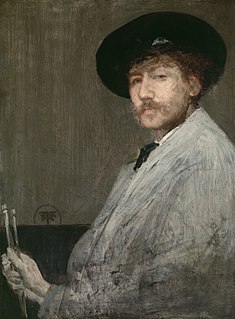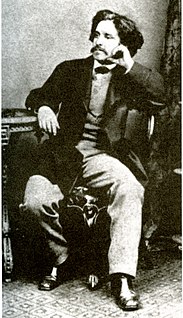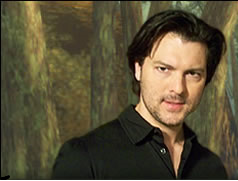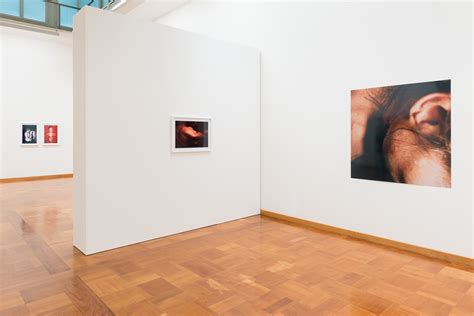A Quote by James Whistler
Industry in art is a necessity - not a virtue - and any evidence of the same, in the production, is a blemish, not a quality; a proof, not of achievement, but of absolutely insufficient work, for work alone will efface the footsteps of work.
Related Quotes
If then, as we say, good craftsmen look to the mean as they work, and if virtue, like nature, is more accurate and better than any form of art, it will follow that virtue has the quality of hitting the mean. I refer to moral virtue [not intellectual], for this is concerned with emotions and actions, in which one can have excess or deficiency or a due mean.
In most modern instances, interpretation amounts to the philistine refusal to leave the work of art alone. Real art has the capacity to make us nervous. By reducing the work of art to its content and then interpreting that, one tames the work of art. Interpretation makes art manageable, conformable.
It must be a good thing to die conscious of having performed some real good, and to know that by this work one will live, at least in the memory of some, and will have left a good example to those that come after. A work that is good-it may not be eternal, but the thought expressed in it is, and the work itself will certainly remain in existence for a long, long time; and if afterwards others arise, they can do no better than follow in the footsteps of such predecessors and do their work in the same way.
A work of art does not need an explanation. The work has to speak for itself. The work may be subject to many interpretations, but only one was in the mind of the artist. Some artists say to make the work readable for the public is an artist’s responsibility, but I don’t agree with that. The only responsibility to be absolutely truthful to the self. My work disturbs people and nobody wants to be disturbed They are not fully aware of the effect my work has on them, but they know it is disturbing.
I love to work, and to make all kinds of work. But if I work on a fashion story then I work for somebody. If I work for me, for an art project, then I'm not that nervous. It doesn't matter when the photo is done. And if I work on a fashion shoot, then I have access to all these things that I can use later for my art - a still life here or there. I can do all of this while the model is changing.
In a play, certainly, the subject is of more importance than in any other work of art. Infelicity, triviality, vagueness of subject, may be outweighed in a poem, a novel, or a picture, by charm of manner, by ingenuity of execution; but in a drama the subject is of the essence of the work-it is the work. If it is feeble, the work can have no force; if it is shapeless, the work must be amorphous.






































